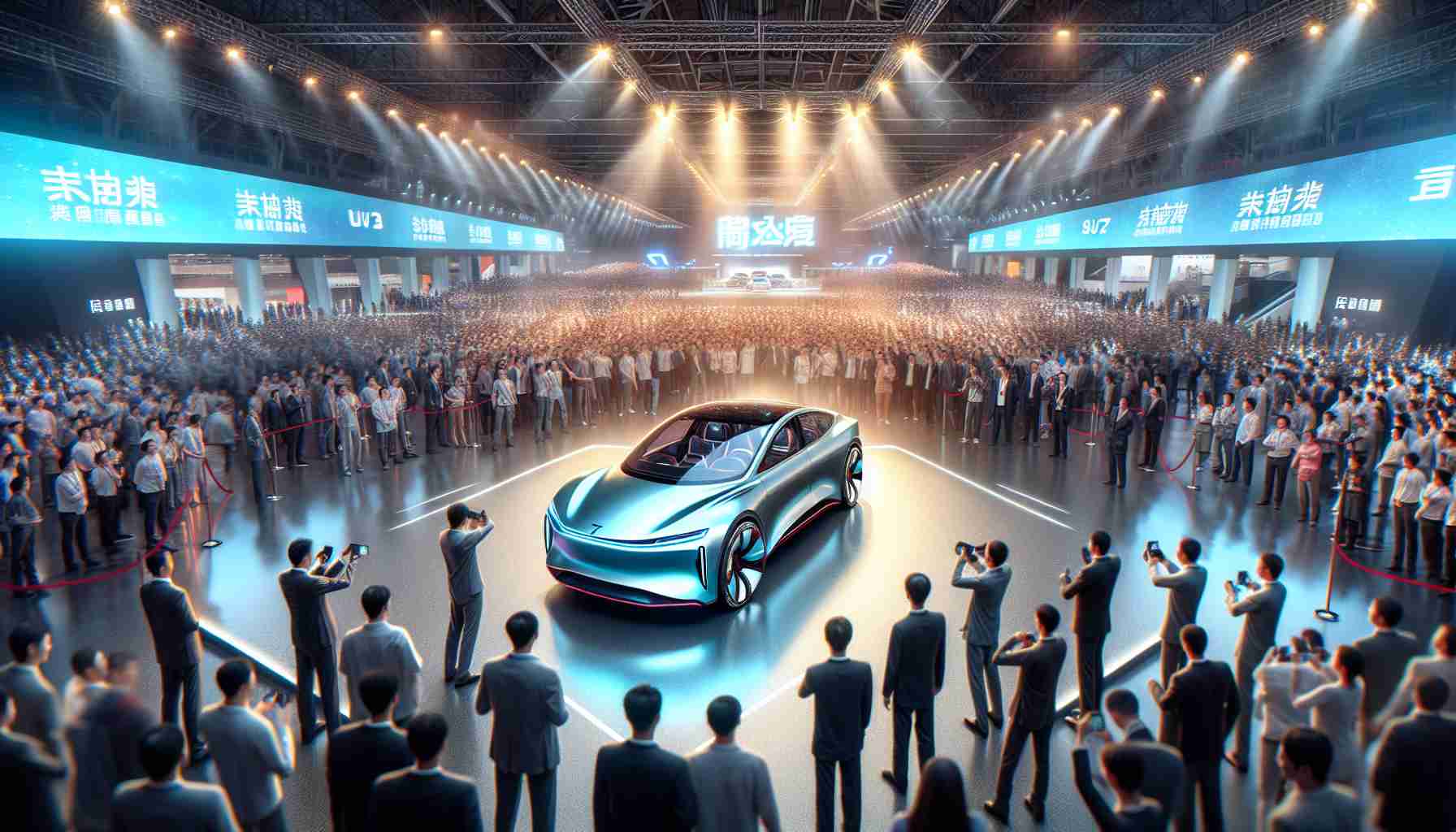Joining the Electric Revolution: Xiaomi, renowned for its smartphones and home appliances, has charged into the electric vehicle (EV) sector with impressive momentum. Its first vehicle, the SU7 sedan, has made Xiaomi the eighth-largest EV newcomer in China’s competitive auto industry. The company’s debut in the EV market has stirred attention due to its existing popularity in the electronics domain.
Competitive Dynamics: With 7,058 units sold in April after its late March debut, Xiaomi has overtaken Avatr, the EV label of Chongqing Changan Automobile, in popularity. This surge reflects a strategic entry into a market brimming with players such as Nio and Xpeng and sub-brands from established car makers like GAC and Geely. Xiaomi is ambitiously aiming for 100,000 deliveries within the year, indicating potential monthly sales averaging above 11,000 units going forward.
Strategic Pricing: Xiaomi’s SU7 is not just competing in terms of volume; it is priced competitively against both homegrown and international brands. It undercuts foreign legacy manufacturers like Volkswagen, whose April sales for its ID series EVs in China, while still higher, were relatively close to Xiaomi’s figures. Moreover, Xiaomi’s SU7 is more affordable when compared to Tesla’s Model 3, offering consumers a significant price advantage.
Market Response and Future Projection: Xiaomi’s entry has been met with a bullish outlook from market analysts. Notable predictions from HSBC Qianhai expect annual sales for Xiaomi’s vehicle to reach 348,000 by 2026. With such forecasts, it appears that the company is set to become a considerable force in the growing realm of electric mobility.
Broad Trends: The expansion of Xiaomi mirrors a wider shift in strategy among Chinese EV firms, with many seeking opportunities beyond domestic borders in response to intense local competition. This trend is reflected in the record-breaking surge in Chinese vehicle exports, juxtaposed with a dip in domestic sales as per recent reports from the China Passenger Car Association.
Important Questions and Answers:
– Why is Xiaomi’s entry into the EV market significant?
Xiaomi’s entry into the EV market is significant because it brings a strong brand reputation and consumer electronics expertise to an industry that is increasingly blending technology with transportation. Their competitive pricing strategy could also put pressure on existing players and potentially lower prices for consumers.
– What challenges does Xiaomi face in the EV market?
As a new entrant, Xiaomi faces multiple challenges such as establishing a reliable supply chain, ensuring high-quality production standards, carving out a market share in a crowded market, and dealing with the complexities of automotive regulations and safety standards. Moreover, building consumer trust in its vehicles will be crucial due to the company’s lack of experience in automobile manufacturing.
– What controversies or issues might Xiaomi encounter?
Xiaomi may confront issues related to intellectual property, especially in a sector ripe with technological innovations. They also have to navigate the trade tensions and regulatory challenges that can affect the industry. Additionally, as with any vehicle launch, they could experience recalls or safety concerns that may affect their reputation.
Advantages and Disadvantages:
– Advantages:
Xiaomi’s advantages include its already well-established brand, technological expertise, and substantial financial resources. It brings a fresh perspective to the EV market, potentially accelerating innovation and providing more choices for consumers. The competitive pricing of the SU7 could make electric vehicles more accessible to a broader audience.
– Disadvantages:
One significant disadvantage is Xiaomi’s lack of experience in the automotive industry, which may lead to operational hurdles and impact the resiliency of its supply chain. Competing with established automobile manufacturers who have decades of experience in production, safety, and logistics might also be a daunting task for Xiaomi.
Market Response and Future Projection:
– The bold expectations from market analysts indicate a positive response to Xiaomi’s initiative. Should Xiaomi meet these projections, they would cement themselves as key players in the EV industry.
Broad Trends:
– Xiaomi’s strategy aligns with the broader trend of Chinese companies expanding internationally to avoid local competition. This also helps to establish China as a significant player in global markets, especially in emerging sectors such as electric vehicles.
For more information on Xiaomi and its array of products, visit their official website: Xiaomi. Please note that you should verify website URLs before clicking, as they could change over time or primarily cater to specific regions.
The source of the article is from the blog motopaddock.nl
